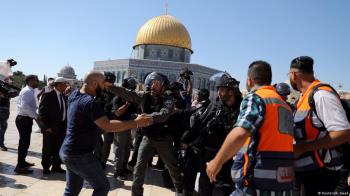Alwaght-The Afghan intelligence agency says the leader of the Taliban Takfiri terrorist group in Afghanistan, Mullah Akhtar Muhammad Mansour, was killed in a drone attack on Saturday.
“Akhtar Muhammad Mansour, the leader of the Taliban group, was killed around 3:45 p.m. yesterday as a result of an airstrike in Dalbandin area of Baluchistan Province in Pakistan,” the Sunday statement said. “He had been under close surveillance for a while, until his vehicle was struck and destroyed on the main road in the Dalbandin area.”
The Chief Executive Officer of Afghanistan, Abdullah also confirmed Mullah Akhtar Mansour was killed in a drone strike in Quetta, the provincial capital of Balochistan province of Pakistan.
Some Taliban commanders vehemently denied that Mullah Mansour was present in the area of the strike, which occurred on Saturday near the Afghan border in the Pakistani province of Baluchistan, but a statement from the intelligence agency, the National Directorate of Security, was unambiguous.
Mullah Hameedi, a top Taliban military commander in southern Afghanistan who confirmed a strike in the border area but denied that Mullah Mansour was there, said: “We are going to persuade Mullah Mansour to publish his audio record to confirm he is alive.”
This is while another Taliban commander known as Mullah Abdul Rauf has confirmed reports that its leader Mullah Mansour was killed in a US assassination drone strike against Pakistan's conflict-ridden southern province of Balochistan. Rauf said the strike took place “in the Afghanistan-Pakistan border area.”
The United States which reportedly carried out the drone attack did not offer confirmation of its own. “We are confident, but at this point we do not have indisputable facts that he is dead,” said Brig. Gen. Charles H. Cleveland, a spokesman for American forces in Afghanistan, said on Sunday.
Pakistan was not informed of the strike beforehand, said a senior American official, who spoke on condition of anonymity to discuss confidential operational details.
Pakistan’s foreign ministry issued a statement Sunday denouncing the attack as a violation of the country’s sovereignty. In the statement, the ministry said a man carrying a Pakistani passport under the name of Wali Muhammad was targeted in the strike along with his driver. It was not immediately clear if either was Mullah Mansour.
The Pakistani foreign ministry added that information about the drone strike was shared with the prime minister and the army chief after the strike.
If fully confirmed, the death of Mullah Mansour’s will add the difficulties facing Taliban’s leadership several months after the death of its founder, Mullah Muhammad Omar.
The Taliban have seen a string of defections ever since the news about the death of its founder and long-time leader, Mullah Mohammad Omar, broke in late July 2015. Mullah Omar died at a hospital in Pakistan’s southern port city of Karachi in April 2013.
The Taliban said they had concealed his death for two years as they did not want to make it public until foreign forces would have ended their fight against the militants in Afghanistan.
The news about Mullah Mansour’s death come as splinter groups within the Taliban had refused to pledge allegiance to him.
Meanwhile, there have been violent clashes between loyalists of the Taliban and ISIS Takfiri terrorist groups in eastern Afghan province of Nangarhar.
ISIS seeks to violently establish its distorted version of Islam in all Muslim states and beyond while the Taliban accepts Afghanistan as a nation-state and actually takes pride in the history of Afghanistan. The group’s leaders have frequently declared that they only seek rule Afghanistan.
Mansoor’s death came days after diplomats from Pakistan, Afghanistan, US and China held the latest round of talks in Islamabad about a flagging effort to draw the Taliban into peace negotiations.
Afghanistan’s chief executive, Abdullah Abdullah, said Mansour was “the main figure preventing the Taliban from joining in the peace process” and had “intensified violence against ordinary civilians.”
Meanwhile the Taliban leadership council, known as Shura, called a meeting beginning Sunday, according to an individual close to the Taliban. Such meetings are usually called to discuss matters of extreme importance, said the individual, who could not be named for security reasons.
The council reportedly met to discuss candidates to succeed Mansour. They are believed to be his two deputies: Sheikh Haibatullah Akhundzada, an elderly religious scholar, and Sirajuddin Haqqani, the operational commander of the hard-line Haqqani network, one of the most potent fighting forces inside the Takfiri group.



























